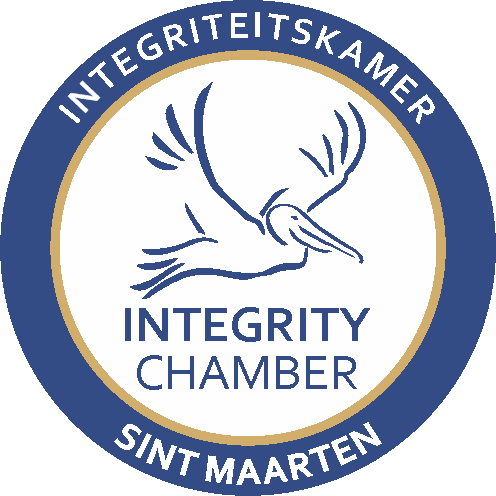CAY HILL, Sint Maarten — The Integrity Chamber recently submitted an advice to the Government and Parliament on the screening of ministers. The advice outlines the importance of implementing integrity norms and values in the screening process and emphasizes the important role that ministers play in upholding public trust and confidence in the government administration.
Ministers hold a prestigious position and have an exemplary function. It is therefore imperative that they act with honesty and impartiality in their day-to-day decision-making, or they risk damaging the credibility of the government and the country. While it may initially seem harmless, incompatible positions, ancillary activities, and external interests, (e.g. board memberships, businesses and property ownership, and personal networks, etc.) may become a source of conflict during the execution of their function.
The Integrity Chamber therefore believes that the current screening process should be adjusted to include additional integrity aspects. There should also be more transparency regarding the process and more awareness regarding the requirements for the ministerial role. The process can be strengthened by focusing on three screening phases: 1) the pre-screening ‘recruitment’ phase, 2) the screening phase and 3) the post-screening ‘monitoring’ phase.
Pre-screening of candidates should begin before the names are submitted for nomination as a minister. Political parties that form a coalition, nominate Ministers, and play a significant role in selecting persons that will govern with integrity. The advice provides a detailed overview of the steps that the political parties should take and questions that can be asked to determine if someone should be considered as a suitable candidate-minister.

There is also the personal responsibility of the candidate to carefully consider and determine whether they are the right person for the role, and whether anything can prevent them from passing the screening. Only when parties are convinced that a candidate meets the requirements, should they be recommended as a candidate-minister.
During the screening phase, the candidates are screened as outlined in the legislative framework.
The current process can be improved by incorporating additional integrity-related investigations. In addition, it is important to consider the reputation of the candidate-minister in the community and how they are perceived as it relates to integrity issues/norms.
The formateur and the Governor play an important role in assessing whether the appointment of the candidate as a minister would harm the functioning of, or the confidence placed in government. To aid in this process, a list of criteria, norms and values for candidate-ministers should be established. This will help in determining when a candidate-minister should be accepted or rejected, based on the results of the (pre)-screenings.
Lastly, once the minister is appointed, the monitoring phase should begin. The Integrity Chamber believes that the behavior of the ministers should be actively monitored on matters relating to integrity, during their tenure, and up to a year thereafter. The focus should be on harmful behaviors and possible conflicts that may interfere with an effective execution of ministerial tasks.
The Integrity Chamber trusts that the implementation of this advice will be a significant step towards improving transparency and accountability in government, and ensuring stability for the people of Sint Maarten.
The full advice can be found at www.integritychamber.sx/publications.






























